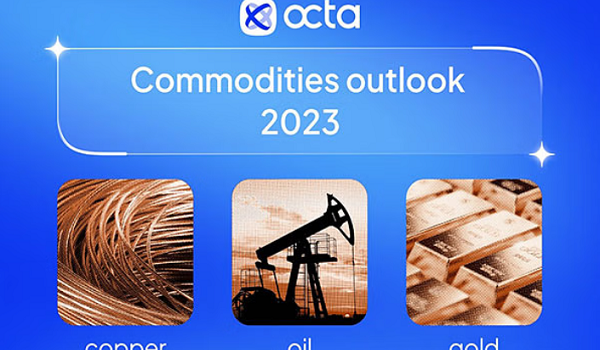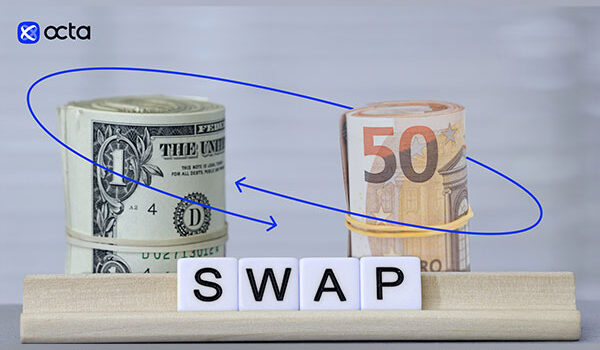New Delhi [India]: Commodity trading offers investors lucrative trading opportunities. In 2023, some commodity asset categories have shown double-digit returns, and some will do the opposite. Octa, in the article, talks about commodity performers in 2023.
Trading commodities is a promising opportunity for those looking to diversify risks, protect themselves against inflation and make money using predictable price movements within a year. So, it will be interesting to find out which commodities perform best and which perform worst. But first, let’s try to understand commodities as an asset.
What are Commodities?
Commodities are the raw materials used to create consumer products, from food to furniture to petrol. Commodities include agricultural products such as wheat and cattle, energy products such as oil and natural gas, and metals such as gold, silver and aluminium. There are also soft commodities that cannot be stored for long periods, such as sugar, cotton, cocoa, and coffee.
Why do traders use commodities to generate income?
Predictability: As commodities are real assets, they tend to react to changes in external factors differently than stocks, bonds, and currencies, which are financial assets. In particular, no central bank regulator sets the rules of the game for tangible assets. Here, the law of supply and demand determines the price–a shortage of a particular commodity naturally raises its price.
Inflation defence: Changes in the prices of the main categories of commodities are the first turn of the inflationary spiral. The more significant the increase in commodity prices, the greater the increase in goods and services production costs (Producer Price Index–PPI). The growth of production costs of goods and services provokes the growth of retail prices, thus shifting the inflationary burden to the consumers (Consumer Price Index–CPI). Therefore, commodity investments can provide portfolios with inflation protection.
Cyclicality: Demand for groups of goods depends on the time of year. For example, the demand for feed grain grows twice a year–during the preparation for sowing and harvest period. Also, there is an assertion that petrol prices rise in summer when the holiday season starts. However, there is a downside–commodities may underperform during cyclical downturns in the global economy when consumer and industrial demand slows down.
Best & worst commodity performers
Almost all commodities ended in 2023 in negative territory: only gold took the crown, other metals showed negative dynamics, and most energy and agriculture commodities declined.
Gold is the leading precious metal. Copper is the best non-precious metal
Gold rose 13.10 per cent to a record high of $2,135. The rise in gold was driven by central bank purchases, which estimated 800 tonnes of gold in the first three quarters of 2023. As rate cuts in 2024 look more likely, investors are looking for a safe-haven gold asset, and the weaker dollar has accelerated this process.
Copper’s rise is driven by current demand, as it is virtually indispensable in most electronic devices, from mobile phones to solar panels.
Meanwhile, the very same factor makes palladium just as unpopular in 2023. Its main uses are catalytic converters and the automotive industry, and car sales have been declining as people keep switching to electric cars.
Lithium and nickel rank last. It’s all about the fact that their supply was extremely high in 2023. In fact, some major producers even halted production amid falling prices last year. The situation is unlikely to improve in 2024.
Energies were on a cyclical correction
Crude oil fell by almost 11 per cent due to rising aggregate supply: at the end of 2023, daily U.S. crude oil production stood at a record 13.3 million barrels per day. In addition, economic activity in China, the leading consumer of crude oil, hurt aggregate demand.
What’s on track now?
- In 2024, moderate consumer activity weakens demand for commodities. The expected interest rate cuts by the U.S. Federal Reserve may not only be good for consumer activity–a weaker dollar will support the price of gold, which may rise even higher.
- Lower inflation will continue to hold down the price of oil in 2024. However, if geopolitical tensions rise, the scenario could be reversed.
- Commodities used in the green energy transition, such as nickel, copper, lithium and zinc, are trending downwards due to continued significant oversupply. Copper, lithium and zinc will also be in surplus in 2024.
Regardless of how 2024 turns out, it is clear that the commodities market offers traders a unique opportunity to make money. Octa allows its clients to trade gold–the most growing commodity, and other types of assets.




